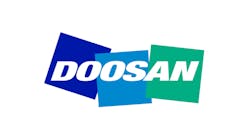Johnson Controls Developing CF Materials for Vehicle Structures
Tier 1 automotive supplier Johnson Controls is developing an automotive design concept involving multiple lightweight materials, intending to replace steel and light metals with fiber-reinforced composites. The CAMISMA research project is a multilateral effort supported by the German Federal Ministry of Education and Research and involving other industrial groups: chemical manufacturer Evonik Industries; Jacob Plastics GmbH, a maker of molded plastic structures for various industries; and Toho Tenax Europe GmbH, a carbon-fiber manufacturer. Germany’s Technical University Aachen is also a partner.
"As a result of climate change and the declining reservoir of fossil fuels, a key challenge for the automotive industry is to develop fuel-efficient and low-emission vehicles," stated Dr. Andreas Eppinger, v.p. - Technology Management at Johnson Controls Automotive Experience. "Vehicle weight is a key factor in determining fuel consumption, so it is important for projects like CAMISMA to help accomplish this goal."
CAMISMA is an acronym for “Carbon fiber- / Amid- /Metallic structural interior component using a multi-material approach,” and the project is scheduled to be conducted over three years. It will focus on using multi-material systems in lightweight designs, on the premise that steel has reached the limits of its lightweight potential, giving an opportunity for replacement by sheets of fiber-reinforced composites (FRC), particularly carbon-fiber materials. Applications of FRC as lightweight, high-strength materials in aircraft design are cited as a positive example of the potential.
Johnson Controls is a Milwaukee-based company with three business units: automotive seating systems, automotive interior components, and automotive electronics. Its particular interest in the CAMISMA research involves automotive seat systems. The project aims to develop “a comprehensive solution” for economically priced carbon fiber-reinforced materials, as well as an effective way to join FRC components and metal-based structures. It will develop and test an automotive seat that will be 40-percent lighter than standard metal seat.
Recently, Johnson Controls revealed a production-ready version of a rear seat backframe that incorporates adhesive bonded steel and aluminum components. "With this design we reduced the weight by more than 30 percent compared to conventional steel designs," Eppinger said. "We will continue to develop additional alternative, even lighter weight materials, with our partners in the CAMISMA project."
The company also is active in efforts to develop battery-powered electric vehicles, though it recently moved to dissolve a joint-venture partnership with Saft Groupe S.A., formed in 2006 to develop and manufacture lithium-ion batteries.
